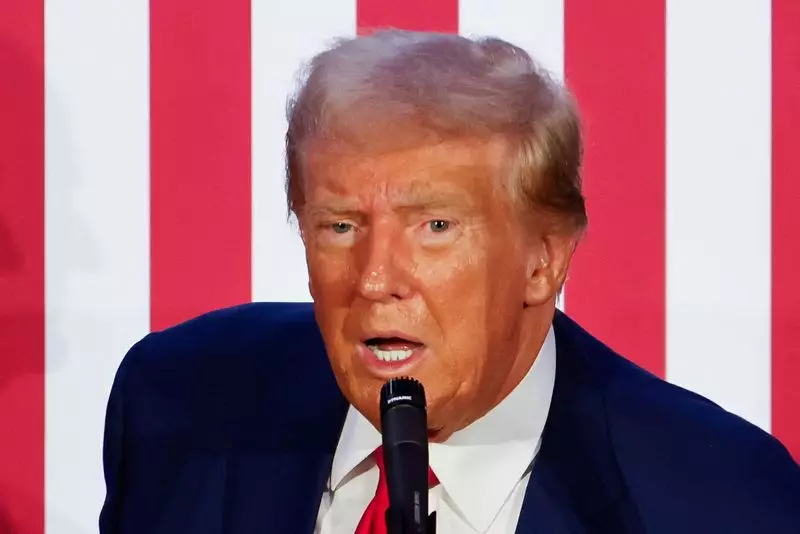As the U.S. presidential election looms on the horizon, investors are on high alert. The uncertainty surrounding the election’s outcome could lead to significant shifts in global markets, particularly if Republicans secure a decisive victory. Charles Gave of Gavekal Research has raised a critical flag for investors. He cautions that if the Republicans triumph, particularly in larger margins, immediate actions to divest from the euro and French bonds should be prioritized. The reasoning lies in the existing fragility of the eurozone, which is grappling with increasing economic turmoil, and France appears to be at the center of this storm. With the nation suffering from escalating deficits and a substantial debt burden, concerns about its economic stability are mounting.
Gave draws intriguing parallels between the current political climate and past U.S. elections, notably referencing the economic landscape post-Ronald Reagan’s 1984 victory. The massive policy changes that ensued during Reagan’s administration serve as a blueprint for what could unfold should Trump’s leadership be reinstated. Investors may anticipate substantial economic policy shifts, especially in relation to tax reform and government size. Such changes could invigorate the U.S. economy, leading to improved returns on investments and potentially increased borrowing. The implications of this are broad and concerning for European markets, especially in light of the already precarious situation in France.
One of Gave’s key assertions revolves around the potential for increased long-term interest rates in the U.S. This rise would subsequently exert upward pressure on interest rates in other major economies, including France. The concern is valid, as higher borrowing costs, coupled with France’s persistent deficits and lack of robust economic growth, could lead to a profound financial crisis. With no significant economic recovery to cushion the blow, analysts foresee conditions reminiscent of previous financial disasters. Gave suggests that, without intervention, France could find itself in a situation akin to Latin America in 1982, Asia in 1997, or Greece in 2011.
In light of these dynamics, Gave’s advice holds considerable weight for investors strategizing their next moves. The call to sell euro and French bonds is rooted in a realignment of risk appetites extended by potential shifts in U.S. policy. With electoral results having the potential to reverberate across global markets, the significance of timely investment decisions cannot be overstated. Investors must remain vigilant and prepared to adapt to swiftly changing circumstances to safeguard their portfolios. The derived insights not only emphasize the interconnected nature of global finance but also highlight the pressing need for prudent management amidst evolving political landscapes.
The prospects of a Republican victory in the upcoming U.S. presidential election could usher in a wave of economic ramifications that extend far beyond American borders, particularly affecting the eurozone and French financial stability.

